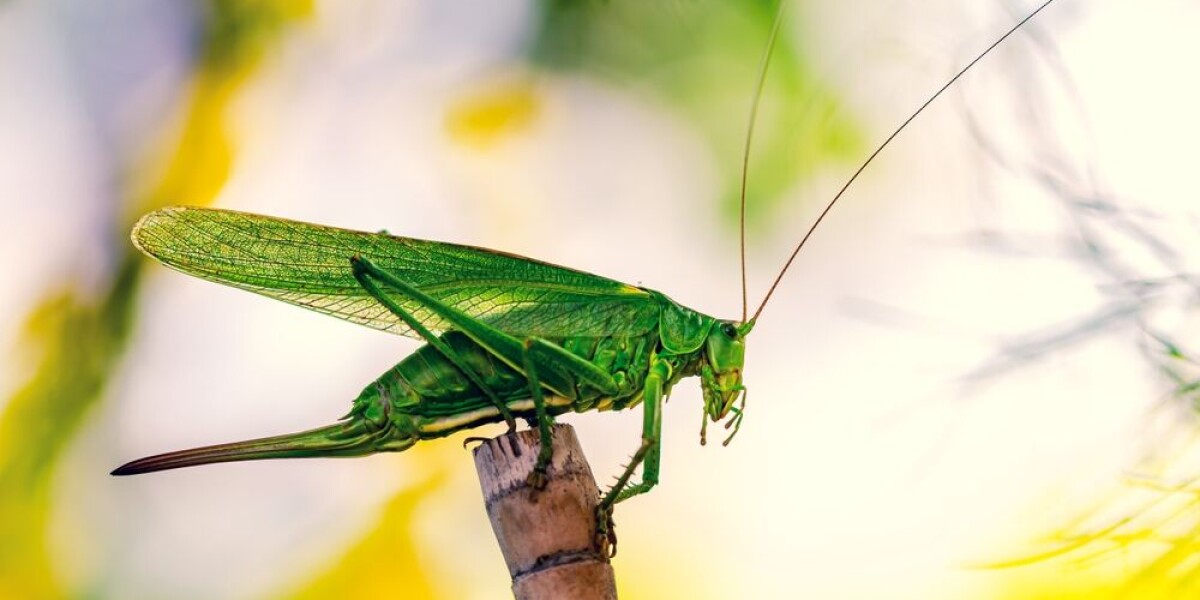Why 'cicada' song in brittany is not what it seems (and sounds like)
Why 'cicada' song in brittany is not what it seems (and sounds like)"
- Select a language for the TTS:
- UK English Female
- UK English Male
- US English Female
- US English Male
- Australian Female
- Australian Male
- Language selected: (auto detect) - EN
Play all audios:
AN ENVIRONMENTAL GROUP WAS ALARMED BY THE SOUND, WHICH IS USUALLY HEARD IN MEDITERRANEAN AREAS, BUT A LOCAL ENTOMOLOGIST HAS A MORE LOGICAL EXPLANATION The ‘Cicada song’ reportedly heard in
Morbihan, Brittany, by members of a local environmental group is probably not what it seems, a local entomologist told _The Connexion_. The group _Bretagne Vivante_ said that the insects,
which are native to southern Mediterranean areas, could have been brought to the Saint-Marcel area on olive trees imported from Spain, adding that cicada larvae could have hidden in the bark
and soil. However, entomologist Michel Collin believes there is another, more logical, explanation. CRICKETS THE MORE LIKELY CULPRIT Mr Collin, who originates from Morbihan and leads the
_Bureau d’Études en Entomologie_, a Brittany-based entomological research and education group, said that the sound was probably that of crickets. The great green bush-cricket, which can be
found in almost all of France, produces a very similar sound to that of cicadas when temperatures rise in the summer. This cricket is very susceptible to pesticides, which is why it has
become increasingly rare in areas like Brittany where there is a lot of intensive farming. Though it occasionally eats plants, this cricket mainly consumes other insects, such as
caterpillars and pests like the potato beetle. Indeed, prior to the growth of chemical pesticides, these crickets were seen as free pest control. Hearing them in Brittany is therefore a good
sign. Although it is still a possibility that cicadas have been introduced accidentally, Mr Collin says it is ‘highly unlikely’. Both cicadas and crickets ‘sing’ when temperatures rise
above a certain threshold, which is why global warming may affect how much they are heard during the year. However, they produce their sounds in different ways, as cicadas vibrate their
hollow thorax while crickets mostly use a dedicated part of their legs. Turning singing insects into cicadas is not a first in France: the poet Jean de la Fontaine’s fable, ‘the ant and the
cicada’ was originally a Greek story by Aespo, titled ‘the ant and the grasshopper’. READ MORE: WHY YOU MAY BE HEARING CICADAS IN FRANCE MORE THIS WEEK ÊTRE FOURMI PLUTÔT QUE CIGALE: A
FRENCH EXPRESSION YOU MAY HEAR TODAY HOW CAN FRANCE FIGHT INVASIVE SPECIES LIKE ASIAN HORNETS?
Trending News
500 Internal Server ErrorПривет! У нас что-то сломалось на сервере, но уже скоро мы все починим.А чтобы вам не было скучно — предлагаем сыграть в...
Chris rock ‘storms out’ in middle of comedy set at billionaire’s partyChris Rock “stormed out” in the middle of his comedy set at billionaire Anthony Pratt’s Christmas party. The 59-year-old...
Stopping illegal migration to usaPUBLISHED ON March 16th, 2022 The sketchiest boats afloat are in use as people seek to reach the shores of the USA. The ...
Web buzz: it's all about hotel 'likes' at tripbirds. ComHere’s a hotel search engine for the social media-obsessed. NAME: Tripbirds.com WHAT IT DOES: Sorts hotel searches accor...
Peter Nicholas, The AtlanticTHE ATLANTIC DAILY Get our guide to the day’s biggest news and ideas, delivered to your inbox every weekday and Sunday m...
Latests News
Why 'cicada' song in brittany is not what it seems (and sounds like)AN ENVIRONMENTAL GROUP WAS ALARMED BY THE SOUND, WHICH IS USUALLY HEARD IN MEDITERRANEAN AREAS, BUT A LOCAL ENTOMOLOGIST...
Life after death: man ‘knew everything’ in near death experienceGiving his name as just Ray, he claims to have transcended time when he was clinically dead for just a few minutes. Ray ...
20 New Novels for Spring_WHEN A STRANGER COMES TO TOWN_ BY THE MYSTERY WRITERS OF AMERICA It's said that all great stories are either about...
Correction: occurrence of leukaemia following gene therapy of x-linked scid_Nature Rev. Cancer_ 3, 477–488 (2003) On page 482 of this article, a recent report by S. Hacein-Bey-Abina _et al_. was ...
The page you were looking for doesn't exist.You may have mistyped the address or the page may have moved.By proceeding, you agree to our Terms & Conditions and our ...
